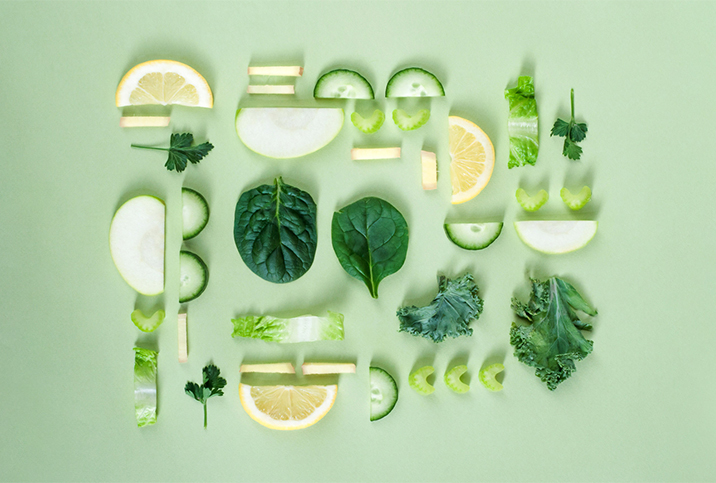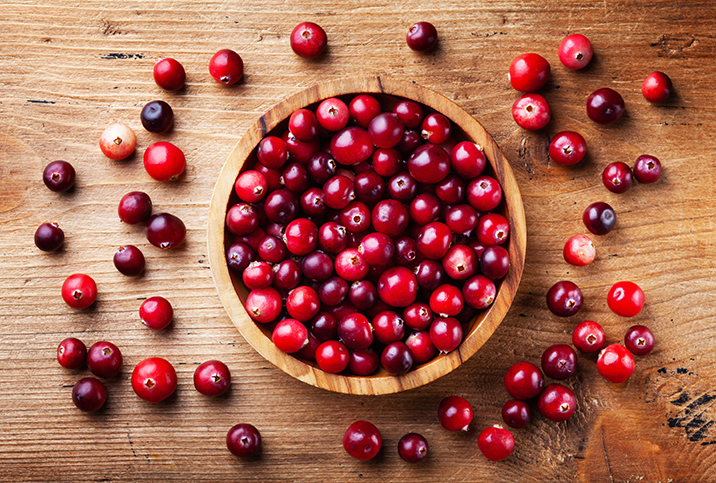Exercise, Diet & Nutrition: Myths & Misconceptions

Everyone wants to be healthy. But knowing what’s healthy can feel like trying to hit a moving target, as advice and guidelines seem to change as frequently as the weather.
Take a spin on the internet and you’ll find people who advocate exercise as the only way to get healthy, others tell you just as vehemently that you are what you eat, period. And, of course, the truth is somewhere in between the two.
Indeed, there are so many misconceptions that it’s difficult to tell facts from fiction. Let’s take at some of the most common myths.
Exercise
Working out and staying active is hard work, and unfortunately, few people really understand how to get, and stay, in shape. It doesn't help that the internet is filled with countless opinions that all seem to contradict one another.
To give you a leg up, we gathered five of the most common myths about exercise and dug up the information needed to debunk them.
Myth: Exercise turns fat into muscle.
Reality: Fat and muscle are two different types of tissue. When you work out, whether it's cardio, strength training or isometric exercises, you are stretching muscle tissues. These repeated activities will build more muscle tissue, but you are not magically converting fat cells into muscle tissue. And even when your body burns the glucose that is stored for short-term use and needs to convert fat cells into fuel, fat is not being converted into muscle tissue.
Myth: Lifting weights will make me bulk up.
Reality: This common misconception has prevented many folks from picking up dumbbells because they want to be healthy but don't want to look bulky. The truth is excess fat makes you look bulky. When you lift weights, you target weak muscle groups and strengthen your body to build stamina and lose weight.
Lifting weights actually burns excess fat and can also isolate and strengthen your muscle groups. Weight-bearing exercise is recommended for women who are at a higher risk of developing osteoporosis.
In short, if you want to be healthy, you should be pumping some iron.
Myth: I need to take supplements.
Reality: Some research supports the idea that we should take supplements, but these supplements are meant only to fill gaps in our daily diet. For some reason, the health industry has convinced people that they will build more muscle if they take highly concentrated doses of specific nutrients, but this is just not true. In fact, taking too many supplements can damage your liver and kidneys, which can cause problems later in life.
And remember, very few supplements are tested and approved by the Food and Drug Administration, so it's buyer beware with supplements. Make sure you loop your doctor into any decisions you make to include supplements in your regular diet.
Instead of swallowing a handful of pills, you should focus on making lasting dietary changes that will help you get the nutrients you need every day from your food choices and allow your system to process these nutrients naturally. If you do this already and feel like your diet is still lacking, you can take a daily multivitamin, which researchers agree most adults should be taking anyway.
Myth: Exercise is best done in the morning.
Reality: It really doesn't matter when you exercise, as long as you do it consistently. While many people prefer to exercise in the morning, not everyone can. Exercising after work, at the end of the day, may help you blow off steam. Many people take exercise classes after work and find they sleep better on the nights they work out.
Of course, you should plan your exercise according to the constraints of your lifestyle. But the important point here is simply to exercise.
Myth: I need to join a gym to get the best workout.
Reality: You can easily set up your own home gym and save a lot on club memberships and equipment. For example, don't purchase weights; instead lift items you find around your home, such as soup cans and jugs of water. And while you might miss the camaraderie of signing up for a gym, plenty of effective workout videos are available online for free.
If you need to go to a gym to guarantee that you put in an hour on the treadmill, or if you need a class to push you to give 100 percent, then you should join a gym. However, if you like working out in the privacy of your own home, then save your money and invest it in some home workout gear.
Diet and nutrition
Here are the top five myths about diet and nutrition that we’ve all fallen for, and the information you need to know to debunk them.
Myth: All calories are equal.
Reality: If you eat fewer calories than you burn, you will lose weight, but this isn’t exactly right. What you choose to consume in your daily allotment is just as important as how many calories you consume. For example, if you consume 2,000 calories of whole fruits, vegetables and nuts, your diet will be far more nutritious than if you consume 2,000 calories of granola bars, meal-replacement shakes and low-fat, processed foods.
Instead of agonizing over how many calories you consume, focus on the nutrition in your daily diet. Some healthy foods like nut butters, avocados and artichokes are exceptionally high in fat and calories, but they contain essential nutrients that help with brain function and muscle recovery, and provide lasting fuel for your body.
Myth: Eat less to lose weight.
Reality: This dangerous myth focuses on cutting calories to lose weight. It’s true that cutting calories dramatically will cause your body to lose some weight. However, your body will actually hold on to your fat stores as a way to protect vital organs and avoid starvation. The reality of starvation dieting for most people is that once they reach their goal weight, they go back to eating the way they had before losing weight.
Dieters will often “yo-yo” back and forth between their goal weight and a heavier weight. Instead of falling into this cycle, make lasting changes to your lifestyle by getting active, and slowly replace nutritionally lacking food with something that’s healthy for you. Making sound choices about your nutrition will also keep you from falling back into old habits.
Myth: Detoxing can reset my metabolism.
Reality: The goal is to “flush your body” of toxins by drinking some liquid concoction. The idea is that these toxins prevent organs from functioning properly, so they have to go. Here’s the thing: The human body cannot be flushed like a water line. Choosing to subsist on a liquid-only diet is a dangerous shock to your system. The worst bit of news about detox diets is that there’s no research to prove that any of them work.
Instead of trying all the fad detoxes, consider a diet that eliminates processed foods in favor of whole foods such as fruits, vegetables, beans, nuts, and lean meats and fish. This diet focuses on only consuming foods that look like they would in nature, the foods you can usually find on the perimeter of the grocery store. This diet allows you to feed your body the fuel it needs by avoiding empty calories.
Myth: Carbs make me gain weight.
Reality: This myth has been all over the internet, and it doesn’t seem to be going away. The theory is that by eliminating carbohydrates from your diet, your body will not be able to turn those carbs into the sugars that ultimately make you gain weight. The problem is your body needs carbohydrates to function, and the reality is that the same science of eating in moderation still applies.
Let’s look at some facts here. Almost all food, including apples, celery, spinach and the superfood kale, contain carbohydrates. Your body needs carbohydrates to function. This fad diet originally focused on eliminating empty carbohydrates such as pasta, bread, cookies, cake, pierogies and white rice, and from there it got twisted to focus on all carbs. It’s a good idea to eliminate refined sugar, but it’s never a good idea to starve yourself of vital nutrients.
Myth: Healthy food tastes bad.
Reality: To get us past this myth, we need to understand why junk food is so appealing. Back in our caveman days, we quickly learned that sweet and savory foods offered the biggest caloric impact and helped us survive. In modern society, this means our body craves sweet and salty processed foods instead of healthy whole foods like fruits and vegetables. Despite what the myth says, we can easily overcome this biological sabotage by learning how to season foods to mimic sweet and savory.
Many of us try our best to follow a whole-food diet, but we can still love junk food. However, cooking without fat is actually simple, and if you stick to it, your taste buds will adjust. By replacing oil and butter with savory spice combinations, a whole-food diet can be satisfying and far more nutritious.
Changing your diet is a long-term commitment, and despite what the internet wants you to believe, there are no shortcuts. Now that we’ve disproved the top five dieting and nutrition myths, you can begin your journey to wellness without getting caught up in gimmicks.


















